In a year that has featured tumultuous debates about the very essence of our country, artists of all sorts have responded with an explosion of creativity.
There's been a wave of work: dramatic murals protesting the killing of Black people by police, songs celebrating President Trump and also mocking him, videos urging people to vote. There have been elaborate embroidered messages of protest and contests to design "I voted" stickers.
The outpouring of inventiveness reflects the passions evoked by a presidential election, overlaid on a health crisis with debates about racial justice and fundamental democratic principles thrown in the mix. The slideshow here is but a tiny sampling.
Democracy Matters, a nonpartisan student political reform group, sees art as key to their work and to building community.
"Art can inspire, shock, heal and express emotion," the group's website says. "It engages the senses and stimulates the mind. When art is seen as a core element of encouraging social action, its power moves from a source aesthetic appreciation to a strong political tool."
Diane Mullin, curator at the Weisman Art Museum at the University of Minnesota, has said that "art can teach us or demonstrate things about democracy."
"But art can also participate in democracy because artists are in very important ways contributors to discourse, and contributors to our society," she said said back when her museum was preparing for the 2008 Republican convention in Minneapolis and St. Paul. "So they can put forth proposals and propositions to make us think about things, to make us think about where we live, how we live."
This summer the nearby Minnesota Museum of American Art hosted an online forum of "Black Art in the Era of Protest." One key issue in the discussion was how to preserve the murals and other public displays that may end up being painted over or dismantled.
Here then is a gallery offering a glimpse of the artistic response to the election, racial injustice and the other existential questions about the state of democracy the nation is facing this year.
The art of a movement
Stephanie Keith/Getty Images
After the killing of George Floyd, an unarmed Black man, by Minneapolis police officers, murals of all shapes and sizes have popped up across the country. This one in Brooklyn is by Haitian-American artist Kenny Altido, who's known for painting murals of fallen police and firefighters.




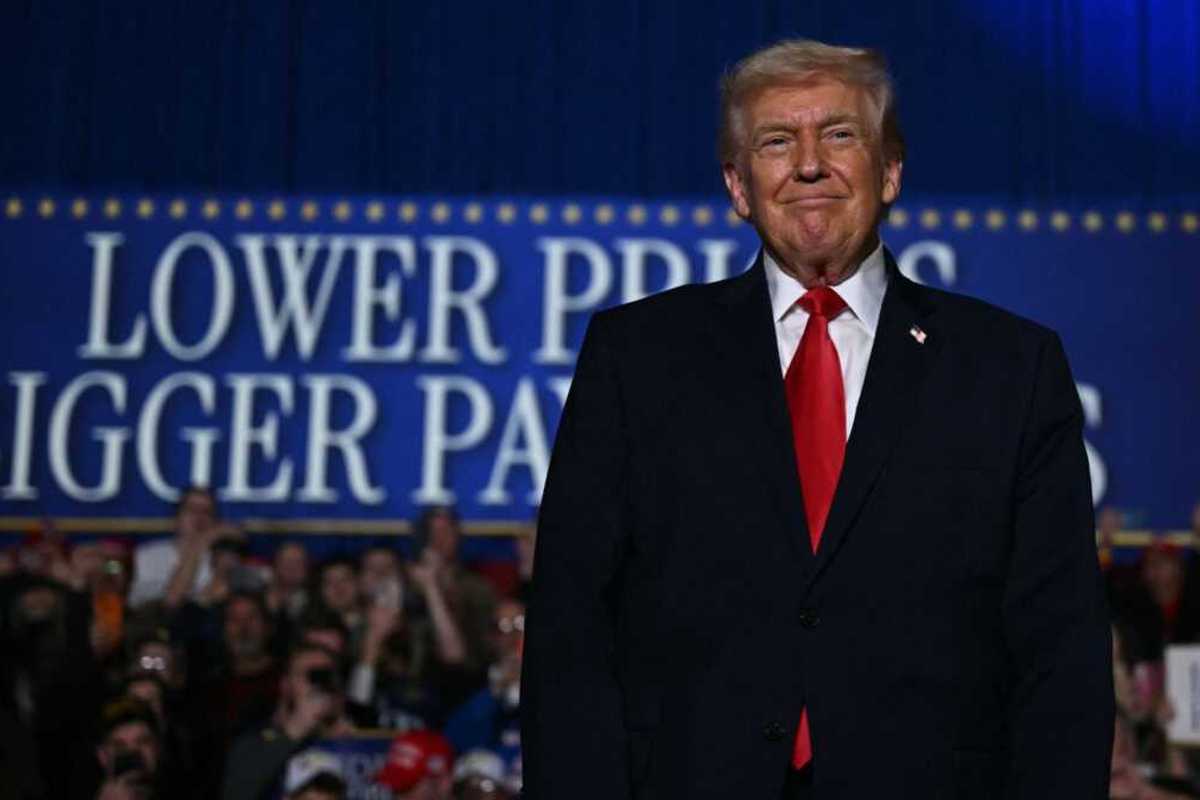
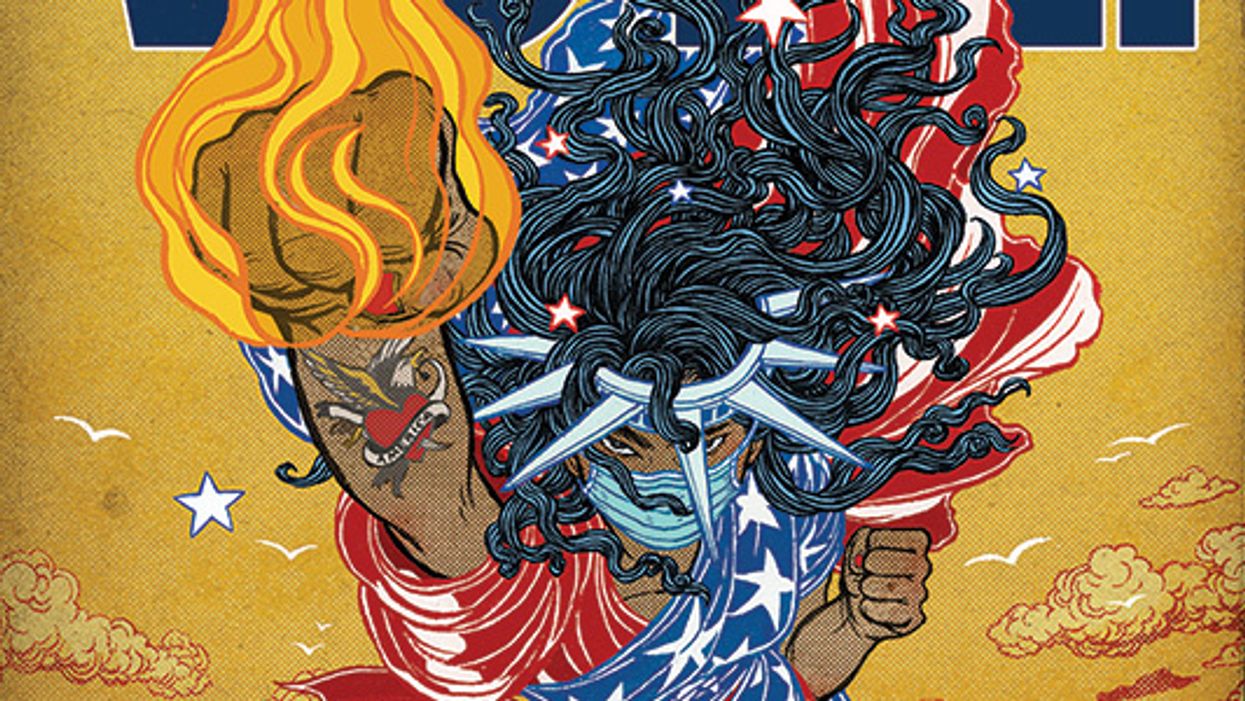

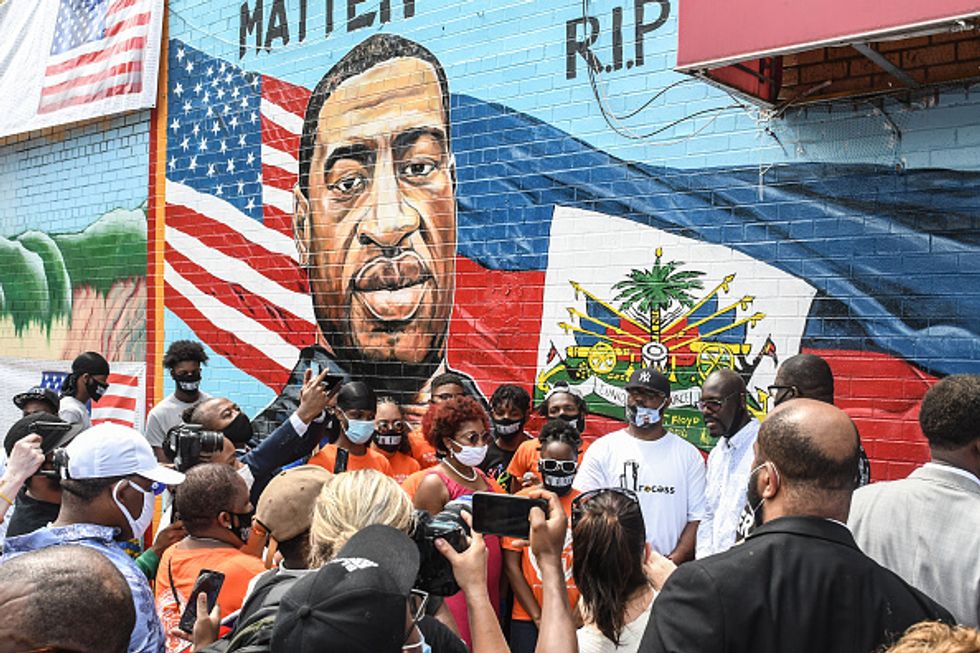
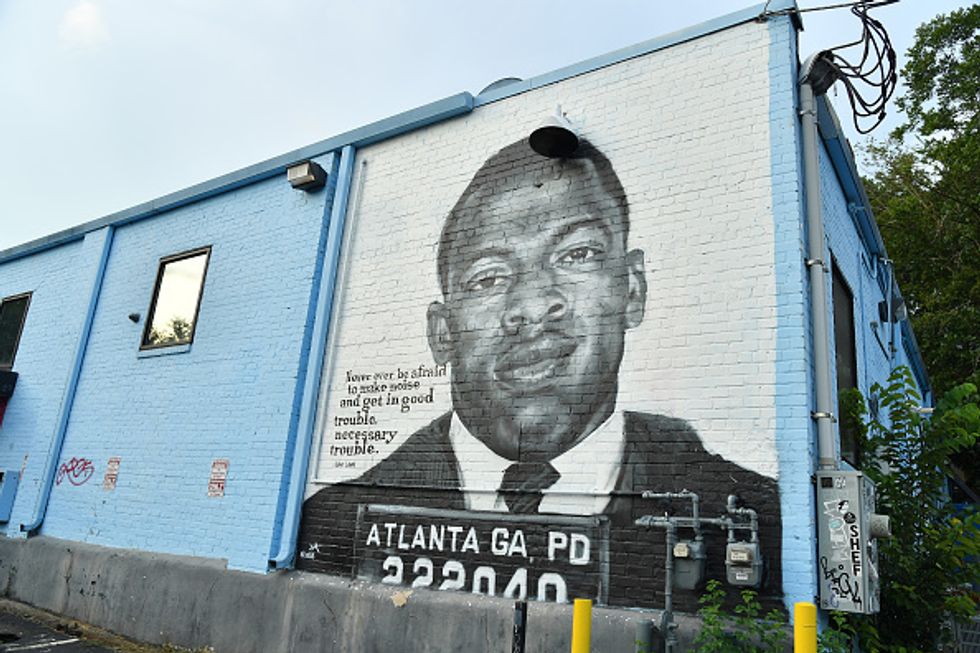
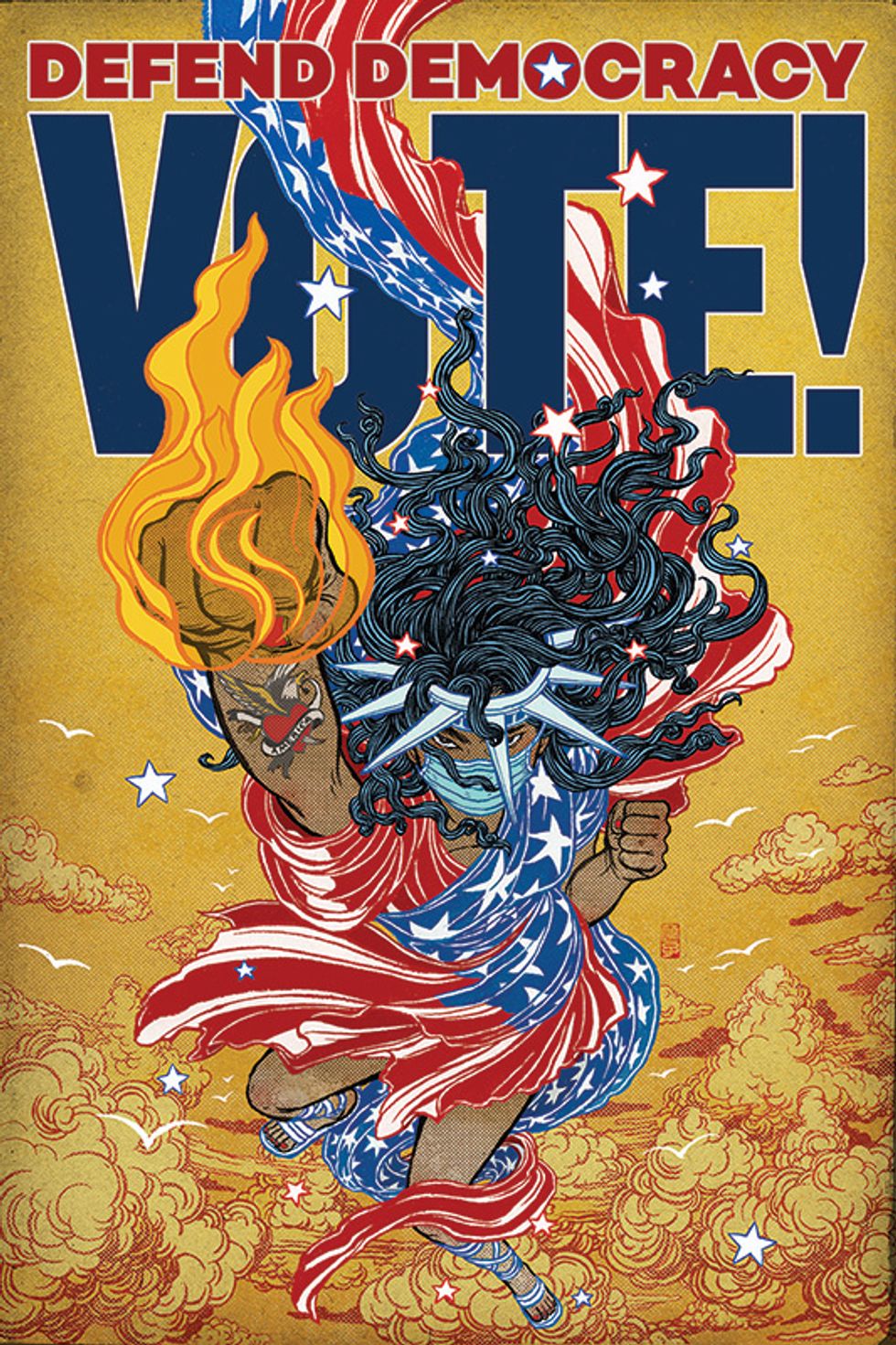
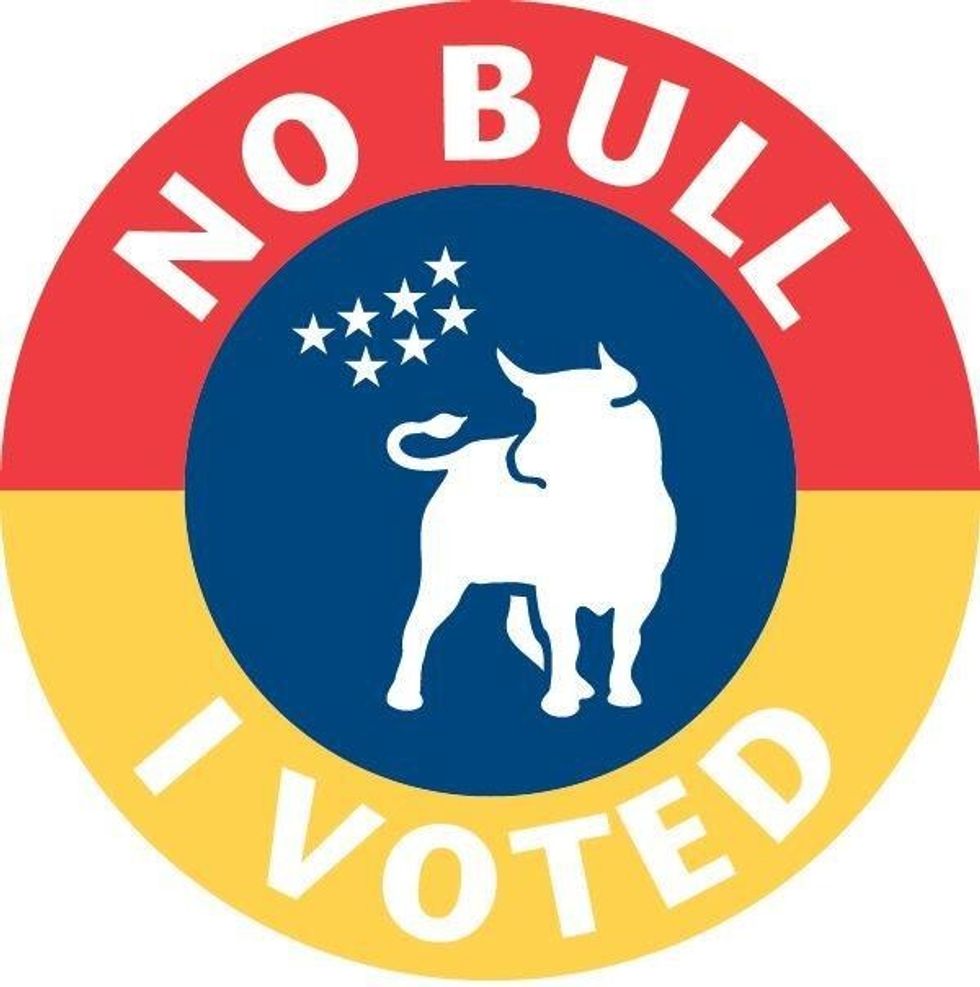
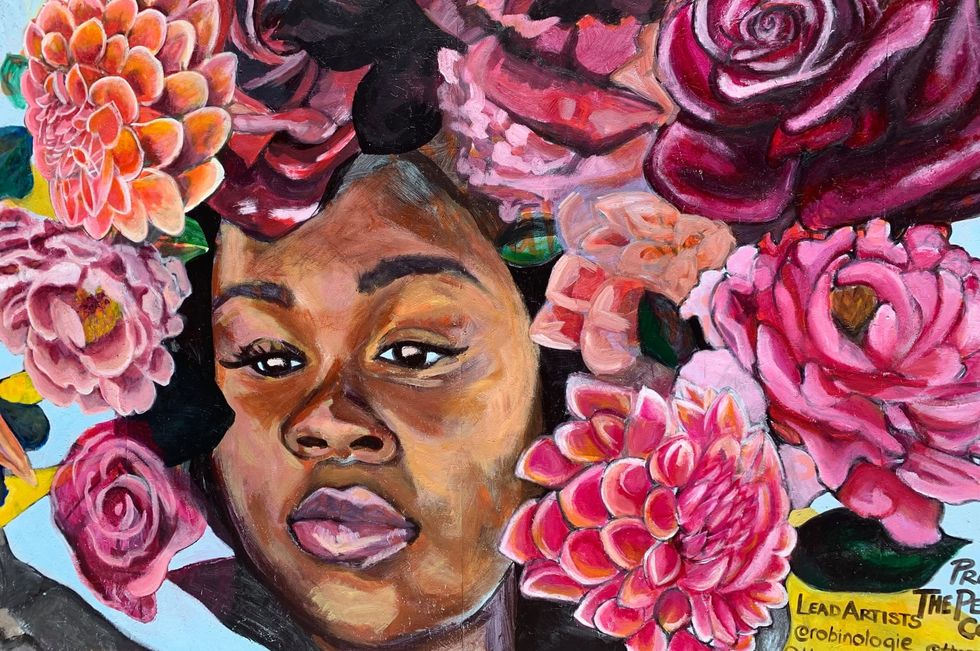
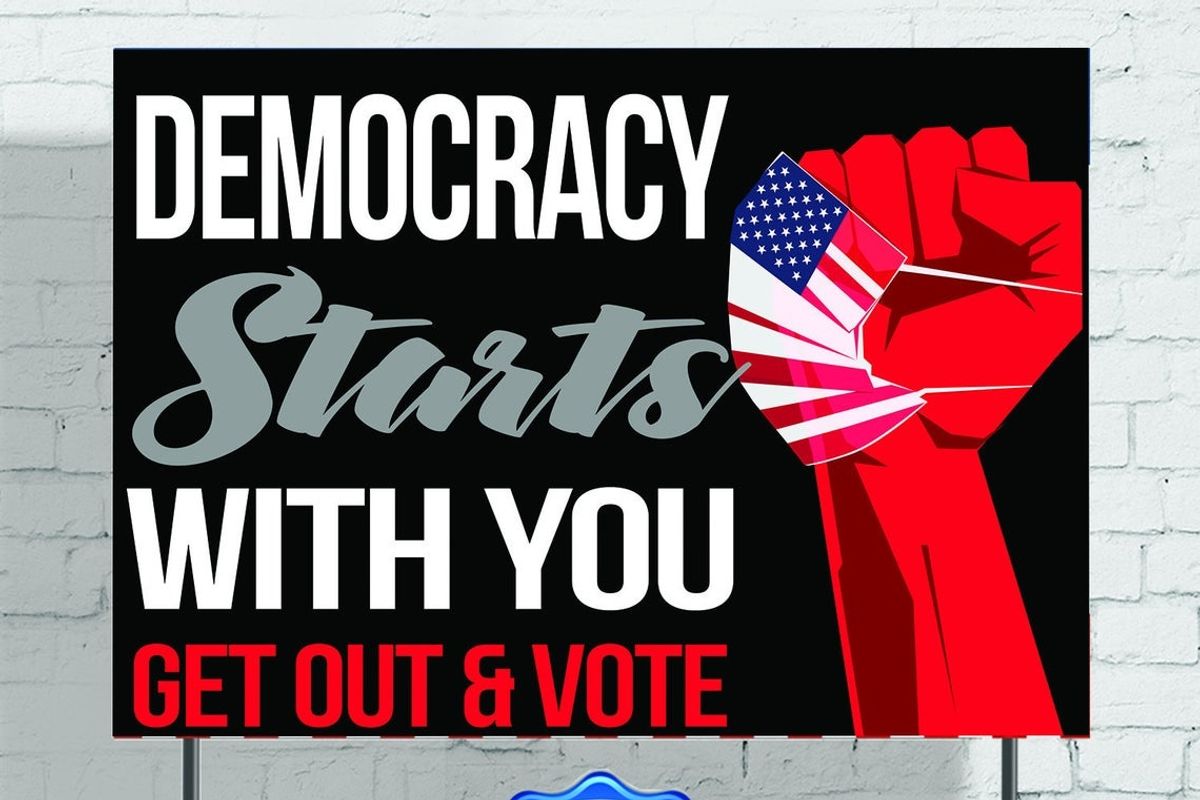

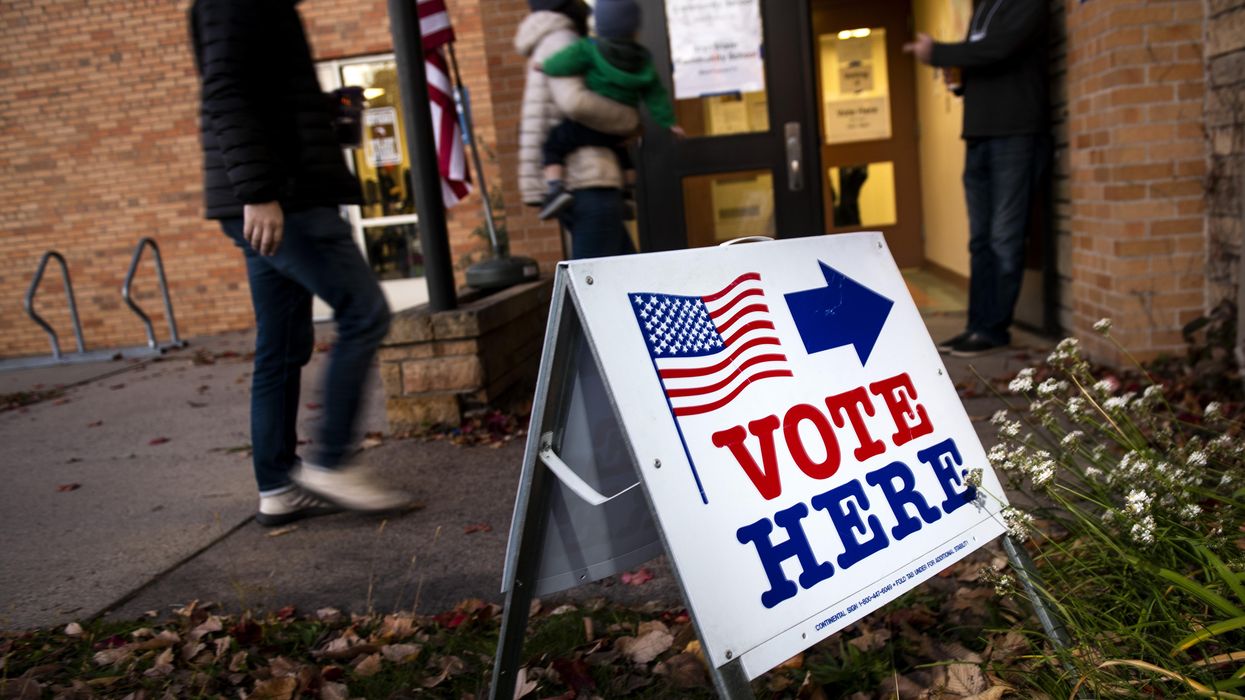










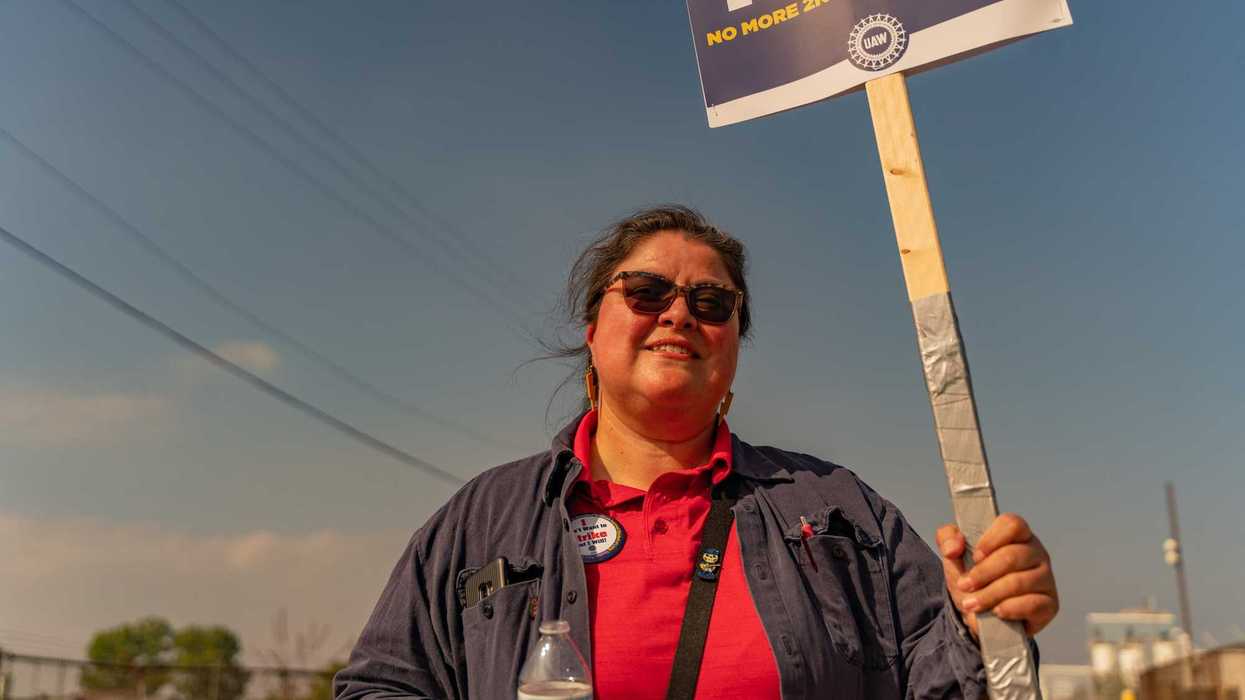
Eric Trump, the newly appointed ALT5 board director of World Liberty Financial, walks outside of the NASDAQ in Times Square as they mark the $1.5- billion partnership between World Liberty Financial and ALT5 Sigma with the ringing of the NASDAQ opening bell, on Aug. 13, 2025, in New York City.
Why does the Trump family always get a pass?
Deputy Attorney General Todd Blanche joined ABC’s “This Week” on Sunday to defend or explain a lot of controversies for the Trump administration: the Epstein files release, the events in Minneapolis, etc. He was also asked about possible conflicts of interest between President Trump’s family business and his job. Specifically, Blanche was asked about a very sketchy deal Trump’s son Eric signed with the UAE’s national security adviser, Sheikh Tahnoon.
Shortly before Trump was inaugurated in early 2025, Tahnoon invested $500 million in the Trump-owned World Liberty, a then newly launched cryptocurrency outfit. A few months later, UAE was granted permission to purchase sensitive American AI chips. According to the Wall Street Journal, which broke the story, “the deal marks something unprecedented in American politics: a foreign government official taking a major ownership stake in an incoming U.S. president’s company.”
“How do you respond to those who say this is a serious conflict of interest?” ABC host George Stephanopoulos asked.
“I love it when these papers talk about something being unprecedented or never happening before,” Blanche replied, “as if the Biden family and the Biden administration didn’t do exactly the same thing, and they were just in office.”
Blanche went on to boast about how the president is utterly transparent regarding his questionable business practices: “I don’t have a comment on it beyond Trump has been completely transparent when his family travels for business reasons. They don’t do so in secret. We don’t learn about it when we find a laptop a few years later. We learn about it when it’s happening.”
Sadly, Stephanopoulos didn’t offer the obvious response, which may have gone something like this: “OK, but the president and countless leading Republicans insisted that President Biden was the head of what they dubbed ‘the Biden Crime family’ and insisted his business dealings were corrupt, and indeed that his corruption merited impeachment. So how is being ‘transparent’ about similar corruption a defense?”
Now, I should be clear that I do think the Biden family’s business dealings were corrupt, whether or not laws were broken. Others disagree. I also think Trump’s business dealings appear to be worse in many ways than even what Biden was alleged to have done. But none of that is relevant. The standard set by Trump and Republicans is the relevant political standard, and by the deputy attorney general’s own account, the Trump administration is doing “exactly the same thing,” just more openly.
Since when is being more transparent about wrongdoing a defense? Try telling a cop or judge, “Yes, I robbed that bank. I’ve been completely transparent about that. So, what’s the big deal?”
This is just a small example of the broader dysfunction in the way we talk about politics.
Americans have a special hatred for hypocrisy. I think it goes back to the founding era. As Alexis de Tocqueville observed in “Democracy In America,” the old world had a different way of dealing with the moral shortcomings of leaders. Rank had its privileges. Nobles, never mind kings, were entitled to behave in ways that were forbidden to the little people.
In America, titles of nobility were banned in the Constitution and in our democratic culture. In a society built on notions of equality (the obvious exceptions of Black people, women, Native Americans notwithstanding) no one has access to special carve-outs or exemptions as to what is right and wrong. Claiming them, particularly in secret, feels like a betrayal against the whole idea of equality.
The problem in the modern era is that elites — of all ideological stripes — have violated that bargain. The result isn’t that we’ve abandoned any notion of right and wrong. Instead, by elevating hypocrisy to the greatest of sins, we end up weaponizing the principles, using them as a cudgel against the other side but not against our own.
Pick an issue: violent rhetoric by politicians, sexual misconduct, corruption and so on. With every revelation, almost immediately the debate becomes a riot of whataboutism. Team A says that Team B has no right to criticize because they did the same thing. Team B points out that Team A has switched positions. Everyone has a point. And everyone is missing the point.
Sure, hypocrisy is a moral failing, and partisan inconsistency is an intellectual one. But neither changes the objective facts. This is something you’re supposed to learn as a child: It doesn’t matter what everyone else is doing or saying, wrong is wrong. It’s also something lawyers like Mr. Blanche are supposed to know. Telling a judge that the hypocrisy of the prosecutor — or your client’s transparency — means your client did nothing wrong would earn you nothing but a laugh.
Jonah Goldberg is editor-in-chief of The Dispatch and the host of The Remnant podcast. His Twitter handle is @JonahDispatch.